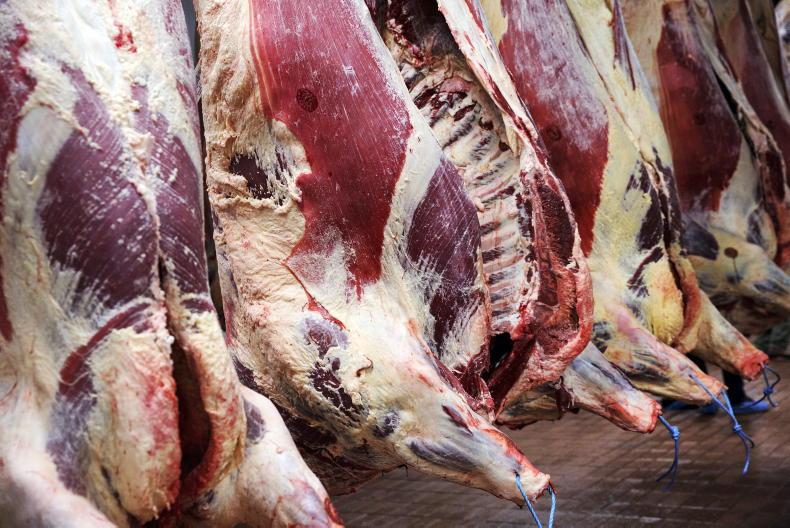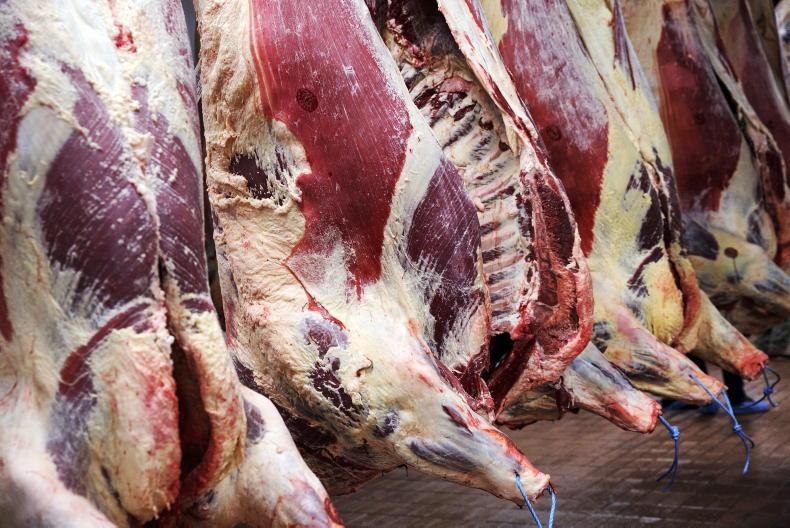The dust has settled somewhat since the UK, our closest neighbour and biggest export market, voted to leave the EU back in June 2016. However, the real work has yet to start, with Britain yet to invoke Article 50, the move that will officially trigger its exit negotiations.
Speaking to the Irish Farmers Journal this week at the 85th National Ploughing Championships in Screggan, Tullamore, Charles Sercombe, NFU livestock board chair, and John Royle, NFU chief livestock editor, said the “initial shock has subsided somewhat, and the country is now at a point where it wants to know what Brexit means.
“It’s so unprecedented, nobody has any template to work to, so we’re trying to put in as much effort as possible to find likely scenarios," said Charles. "But nobody can state for the record what is going to happen.”
Charles added that Brexit is the biggest challenge to face UK farming and the National Farmers Union since the 1947 Agricultural Act.
“It’s a once in a lifetime challenge. Not since the end of the war, the 1947 Agricultural Act, have we been in a position where we have to shape domestic agricultural policy from scratch.”
Reasons for leaving
Before the vote in June, the NFU were unofficially supportive of the UK remaining in the EU. However, farmers in the UK were thinking differently.
“Talking to farmers after the vote, they told us that it was hard to see Irish lamb or beef on supermarket shelves, especially with the downturn in beef prices in the UK,” John said.
“Our producers wanted us to do something about that. Having a protectionist trade policy is in their eyes the best way forward.”
Some farmers thought they could go straight back to the old days after the vote
Charles added that farmers had had enough of “over-burdensome regulation from faceless bureaucrats” in Brussels.
“They were seen to impose too many controls on their businesses that were too difficult to deal with on a daily basis.”
However, it seems that some British farmers had the wrong idea about the freedoms a Brexit vote would give them, with some thinking after the vote that they could go “straight back to the old days… no EID tagging for sheep, burying deadstock on farms - totally undeliverable and unsustainable practices,” Charles said.
Farm payments
Although British farmers have been given an assurance that their payments will continue up until the end of the current CAP in 2020, Charles and John are not confident about the level of support these farmers can look forward to after 2020.
“It’s quite different to Ireland in that way,” said John. “We don’t see the same type of support for farmers in the UK. But we need to make sure the government supports British agriculture after 2020.”
The exit process will be long and torturous
Charles agrees that this is a big uncertainty: “The indications from this government and previous administrations are that the UK would like to have a reduction of support at farm level. I’m fairly pessimistic about the long-term levels of support that will be available.”
As for the negotiation process itself and the kind of trade deal that will result, Charles believes the process will be “long” and “torturous”.
“The NFU has carried out a consultation with our membership, and the largest proportion say they don’t know what kind of trade deal will result from the exit negotiations.
“We’ve looked at a series of different models based on the Turkish, Swiss, Norwegian, or World Trade Organisation models, but the general consensus is that none have overwhelming support. It looks like we will have to find a bespoke deal that suits our needs.”
Listen to the full interview below









SHARING OPTIONS